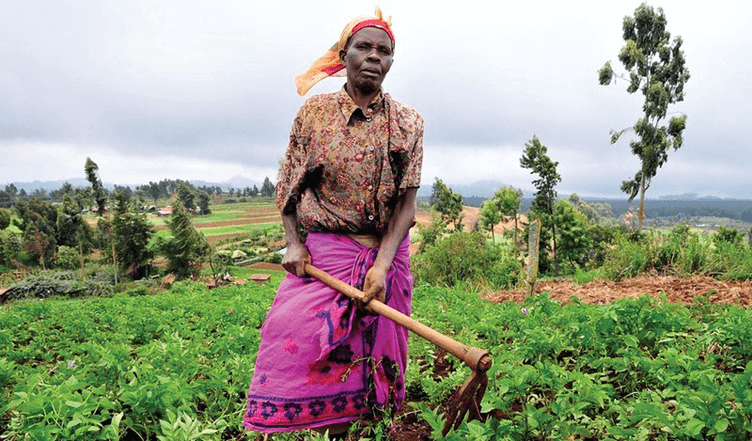Associate Professor
Mariève Pouliot
Department of Food and Resource Economics,
University of Copenhagen
The project investigates how farmers’ vulnerability impacts their adaptation to climate change in conflict-affected regions through a case study of Acholi subregion in northern Uganda, which is beset by a range of interconnected and concurrent social and environmental problems, which render farmers vulnerable.

Extreme climate events and unpredictable weather patterns are affecting farmers around the globe, especially smallholders who do not have many resources to adapt to those changes. Farmers need to deal with a wide range of other problems: displacement after a violent conflict, lack of access to land and natural resources, poverty, and a myriad of other social, economic, political, and environmental problems. Some farmers are in a more precarious situation than others, and therefore not everyone is equally vulnerable to climate change. VUCCA aims to develop a comprehensive understanding of how farmers’ adaptation is linked to their vulnerability, particularly their access to natural resources in conflict-affected areas.
1. Investigate the main sources of vulnerability
a. What do farmers perceive as the main sources of their vulnerability?
b. How and why do changing patterns of land use affect access to natural resources?
c. Which groups are most vulnerable in terms of access to resources?
d. How is vulnerability related to violent conflict?
2. Explore locally driven adaptation strategies
a. How and why do farmers adapt to socio-environmental changes?
b. What do socio-environmental knowledge do farmers draw on to build their adaptation response?
c. How and why do farmers change livelihood strategies?
d. How are farmers' adaptation strategies linked to violent conflicts?
3. Design context-sensitive guidelines for inclusive national and local adaptation and vulnerability policies, aiming at increasing farmers' adaptive capacity and reducing vulnerability:
a. What measures reduce farmers' vulnerability and improve their adaptive capacity?
b. How can the needs and concerns of the most vulnerable groups be addressed?
c. Which role can indigenous socio-ecological knowledge play in reducing vulnerability and improving capacity?
Expedito Nuwategeka
Christine Oryema
Julian Hopwood
| Name | Title | |
|---|---|---|
| Eleni Pappa | PhD Fellow |
|
| Mariève Pouliot | Associate Professor - Promotion Programme |
|
| Martin Reinhardt Nielsen | Associate Professor |
|